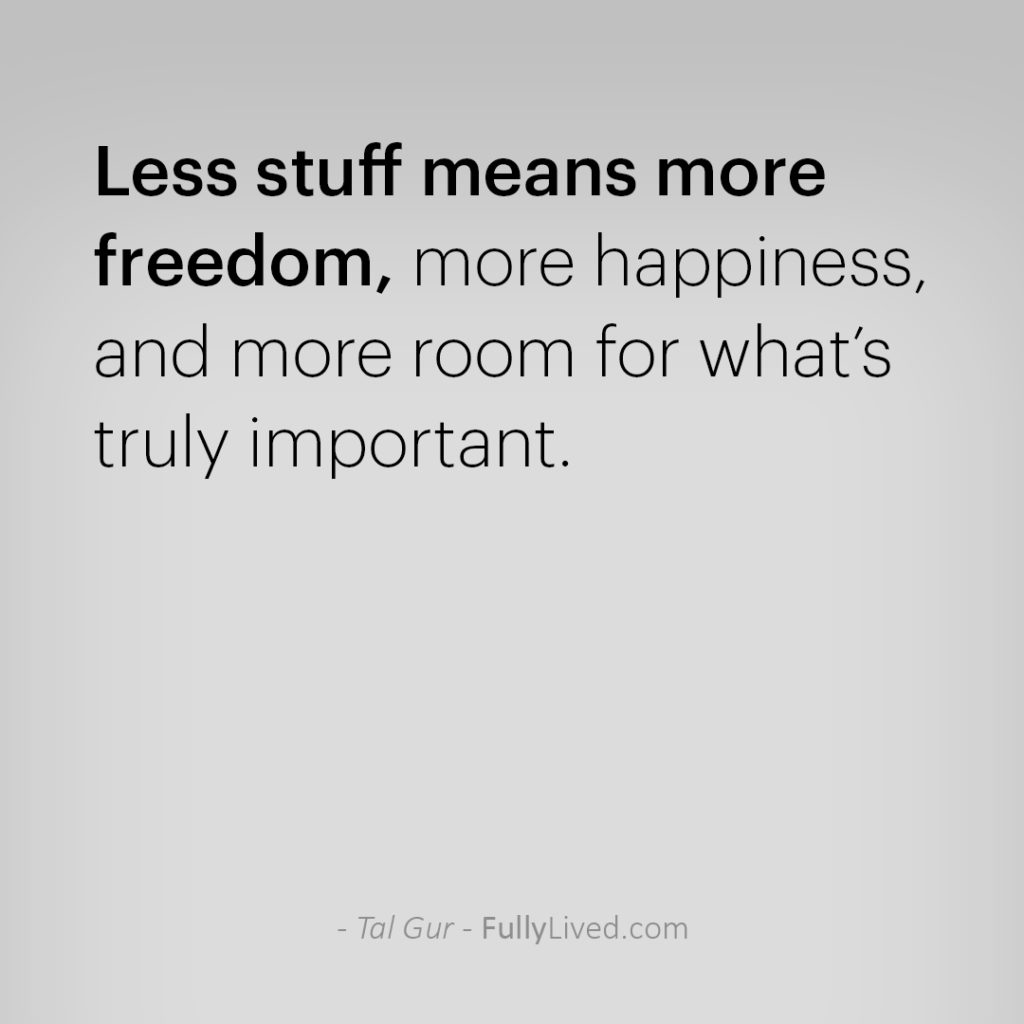Less stuff means more freedom, more happiness, and more room for what’s truly important.
The message behind the quote encapsulates a profound insight into the relationship between material possessions and our overall well-being. It suggests that our pursuit of accumulating physical belongings often comes at a cost, both tangible and intangible, and challenges us to reconsider the value we place on material wealth.
In a world that relentlessly encourages consumption and equates material possessions with success, the notion of having less may appear counterintuitive. However, this quote urges us to recognize that true freedom and happiness lie beyond the confines of materialism. The acquisition of more and more stuff can burden us with excessive responsibilities, attachments, and clutter, constraining our lives in various ways.
When we shed the unnecessary baggage of material possessions, we unburden ourselves from the demands they impose. We create space—both physically and metaphorically—for what truly matters: our relationships, personal growth, experiences, and the pursuit of our passions. By letting go of the accumulation mindset, we gain the freedom to focus on the intangible aspects of life that bring us genuine joy and fulfillment.
Moreover, this quote implies that true happiness is not derived solely from the accumulation of possessions, but rather from a sense of contentment and gratitude for what we already have. By shifting our perspective and embracing minimalism, we cultivate an appreciation for the simple pleasures in life. We learn to find happiness in the experiences, connections, and moments that are not bound by material wealth. Our attention becomes directed towards the beauty of the present moment, rather than fixating on the pursuit of material gains.
Ultimately, this quote advocates for a reevaluation of our priorities. It encourages us to resist the societal pressure to accumulate more stuff and instead focus on nurturing the aspects of our lives that truly contribute to our well-being. By consciously choosing to detach ourselves from excessive materialism, we create a space where the essence of our existence can flourish, unencumbered by the weight of unnecessary possessions.
In embracing this philosophy, we may discover that our freedom expands, our happiness deepens, and our lives become enriched with purpose and fulfillment. Through the intentional pursuit of less, we can pave the way for a life imbued with meaning, authenticity, and an appreciation for the truly important aspects of our existence.
Is there a historical example that illustrates the message of the quote?
Yes, one such example could be the philosophy and lifestyle of Henry David Thoreau. In the 19th century, Thoreau embarked on a two-year experiment of simple living in a self-built cabin near Walden Pond in Massachusetts. His experience and philosophy were encapsulated in his book "Walden," which became a classic of American literature.
Thoreau sought to distill life to its essential elements, removing superfluous possessions and distractions. He found value in living simply, with minimal possessions, freeing himself from the material constraints of his time. This experiment was not only a critique of materialistic society but also a deeply personal quest for spiritual and existential freedom. Thoreau believed that by minimizing physical possessions, one could create space for introspection, contemplation, and engagement with the natural world.
Through his life and work, Thoreau showcased the potential for greater freedom and happiness by reducing material possessions and focusing on what truly matters. This ethos aligns well with the quote: "Less stuff means more freedom, more happiness, and more room for what’s truly important."

*To obtain more inspiration and motivation to achieve your goals, you definitely want to check out my extensive list of growth goals. This page contains SMART goal ideas that can help you establish new aspirations and attain greater heights in your personal growth journey. I utilized this page myself to create my own list of 100 life goals, which I dedicated a decade to pursuing.
Chief Editor
 Tal Gur is an author, founder, and impact-driven entrepreneur at heart. After trading his daily grind for a life of his own daring design, he spent a decade pursuing 100 major life goals around the globe. His journey and most recent book, The Art of Fully Living, has led him to found Elevate Society.
Tal Gur is an author, founder, and impact-driven entrepreneur at heart. After trading his daily grind for a life of his own daring design, he spent a decade pursuing 100 major life goals around the globe. His journey and most recent book, The Art of Fully Living, has led him to found Elevate Society.




















